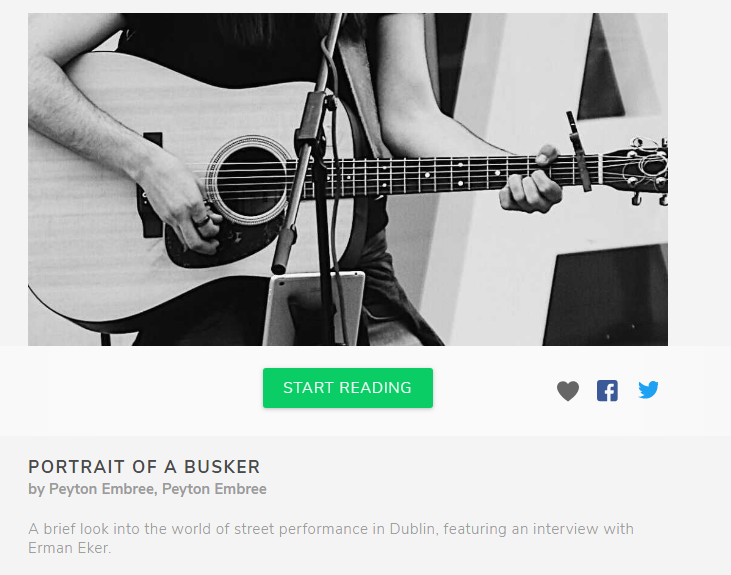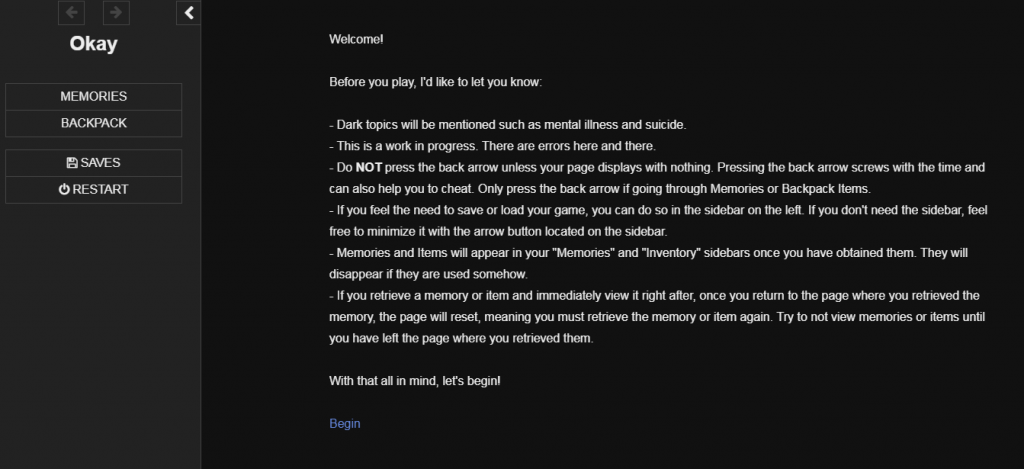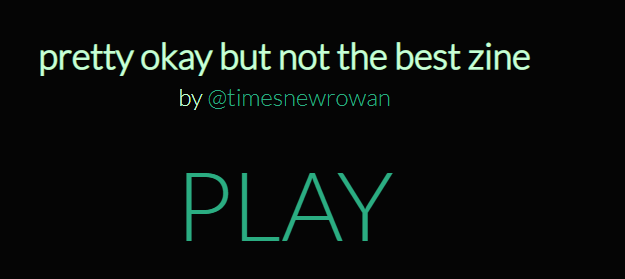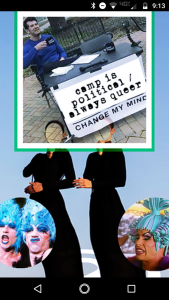
Peyton Embree, Portrait of a Busker
Dublin Study Away Summer 2018 with KleinGo and Professor Laura Zaylea
Curatorial statement by Dr. Adrienne Shaw:
During the summer study away program in Dublin, Ireland, students were required to use one of three new media storytelling technologies to create a project about any aspect of Irish culture, and to use the project as motivation to delve more deeply into Irish life and culture. Peyton did her project on buskers (or street musicians) which required historical research and interviews with buskers around Dublin. The use of a mobile platform, Oolipo, makes the experience of reading and watching the videos in this project feel more intimate than a traditional video format might.
Interactive Zines from MSP 4425: LGBTQ Media Representation Spring 2018 with Dr. Adrienne Shaw

Kenny Thach, Okay

Jeremy Meglen, A Hero’s Quest

Rowan Butler, pretty okay but not the best zine

Sebastian Braccia, Lucid Dreams
Curatorial statement by Dr. Adrienne Shaw:
In MSP 4425: LGBTQ Media Representation students spend the semester engaging with mainstream and subcultural forms of queer media representation including zines from the Beth Heinly Zine Collection (online here) in Temple’s Special Collections Research Center. Zines are traditionally self-published, paper copies, distributed through subcultural communities, and include original and appropriated material. It’s a varied art form, with few rules and lots of room to experiment. With the spread of digital publication tools some creators are moving towards digital zines as they can reach different audiences and allow for different types of reader/text interactions. The final project for this course asks students to explore key concepts from the course material in a zine that is either in hard copy or digital form, with an accompanying paper to explain how their zine reflects the course material.
Three students used Twine to make zines/games in particularly interesting ways. Kenny Thach created a zine reminiscent of early text-based computer games in creating Okay. By navigating through the text based game world the player can interact with objects and spaces that communicate the core lessons from the class while also solving a tricky puzzle. At the same time, the game/zine tells a compelling narrative and its soundtrack sets the mood nicely. Jeremy Meglen created a text-based game/zine called A Hero’s Quest. This game is more light-hearted than Okay, but similarly uses situates in the game to synthesize the course content. Each “boss” the player fights represents a different challenge to fair and equitable LGBTQ representation and is defeated with knowledge from course readings. Also, *spoiler alert* there is a very important break for stew at one point of the game. Finally Rowan Butler uses Twine to create a recursive text, that cycles back in on itself. This helps showcase the interrelated complexity of LGBTQ representation and the course topics. Rather than being overwhelming or confusing, the constant reiteration really drives home the central course themes while also showing how everything connects together.
Sebastian Braccia created a different sort of interactive zine, one designed to be experienced on a mobile phone using the sitebuilder Wix. The site is optimized for mobile viewing, so it is highly recommended you look at it on a smartphone (preferably with a large screen). The zine uses images and texts to synthesize key ideas from the course in evocative but subtle ways.